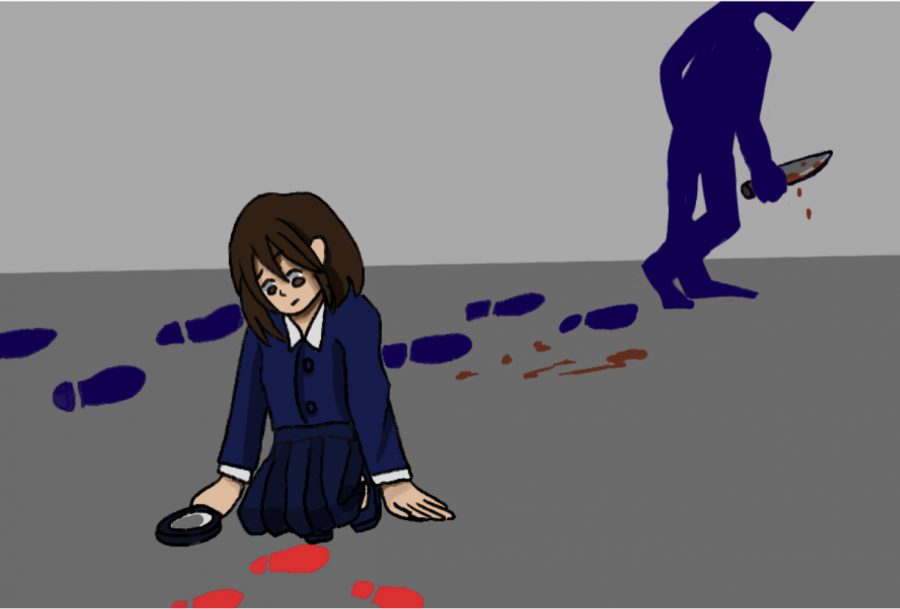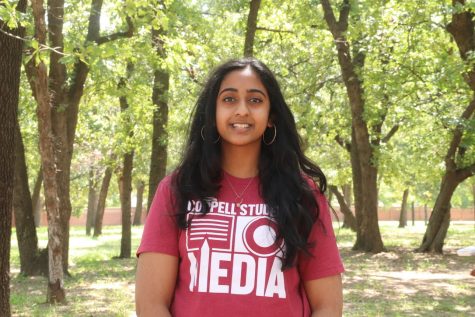Internet sleuths should stay in their lane
True crime is a genre of media that has gained popularity over the last few years. The Sidekick student life editor Anette Varghese thinks true crime fans need to take a step back from making unsupported claims and spreading misinformation.
December 7, 2021
“After today’s episode, if you need an extra fix, go to patreon.com, that’s p-a-t-r-e-o-n.com and search Crime Junkies.”
This line is something I grew used to hearing repeated by the true crime Crime Junkies podcast co-host Ashley Flowers every Monday.
True crime content ranges from podcasts to Netflix documentaries, and recently an emerging community on TikTok. Under the guise of garnering widespread attention, gruesome, heart-wrenching situations are dissected under a spotlight by unresearched and malinformed members of the general public.
I, too, was caught in the true crime rabbit hole at one point. Jumping from podcast to podcast trying to get my fix, scrolling through pages of Reddit theories and ultimately defaulting to the most questionable of Discord servers for answers.
“I feel like the term ‘fix’ has become more of a label, where listeners are seen as addicts,” Coppell High School senior Saanvi Sachdeva said. “While I do not agree with that label, I don’t think it is intended to be dehumanizing like it is perceived.”
At face value, what I and many of my fellow true crime enthusiasts did was commendable. We were raising awareness and bringing attention to aspects of the criminal justice system that are flawed. Digging deeper, we pried into the lives of private citizens that went public; not in accordance with their own will, but because of tragedy.
A recent case that amassed all forms of media traction is the Gabby Petito missing persons case, later discovered to be a homicide.
TikTok itself was the foreground for much of the widespread information on the case. Viewers and content creators alike shared theories, police findings and eventually misleading information.
I came to know about the case not through my nightly 7 p.m. news broadcast, but while I was scrolling through my For You page. Why? because of Hayley Toumaian, a TikTok user, who dedicated herself to spreading awareness through a series of TiKTok videos. She was ultimately just one of the creators that brought the #GabbyPetito hashtag to 1.8 billion views.
Toumaian through her social media has delivered aggregated news from traditional outlets or FBI press conferences. This reactionary journalism opens doors to rookie investigators to speculate amongst themselves in comment sections, such as Toumaian’s.
One of the most widely believed facets of misinformation include Dr. Michael Baden, a well-known pathologist, who was thought to have performed Petito’s autopsy. Instead he only commented on the information the autopsy might reveal.
“The fact that [information] is spread on social media is both good and bad because it is so widespread, I think it’s easier to fact check,” Sachdeva said. “But, because there is so much information, it is difficult to get a hold of all of it, you might not be able to find it but it might be true. Releasing information, whether it be for the sake of views or clout, if they can in the end, help solve a case or recover a family member I think it is worth it.”
Jordan Wildon, a digital investigator tracking misinformation, disinformation, online extremism conspiracists and acts as an open-source intelligence analyst for Logically.AI aired his concerns on online speculation via Twitter.
“Those of us who do this for a living work to certain standards, we don’t publish information about active cases, there are laws and codes of ethics to adhere to and in critical situations when a case is open don’t speculate online, speak to law enforcement,” Wildon tweeted. “It can and does ruin people’s lives, as was the case when Reddit incorrectly concluded that a Florida man was behind a U.S. astroturfing campaign.”
Consumers of the content often reject an empathetic approach because of their physical and emotional distance from the event itself. This leads to many ill-advised and unresearched theories gaining support and being upheld as pseudo-truths in a very large community. This proves to be a dilemma in the age of the internet, where very few viewers conduct their own research, rendering them unable to independently confirm information.
We as a community should be able to understand these issues on a human to human level. Trauma as entertainment that’s packaged to palatable is never OK; if we can’t be respectful, then we shouldn’t get involved.
Follow @AnetteVarghese and @CHSCampusNews on Twitter.











